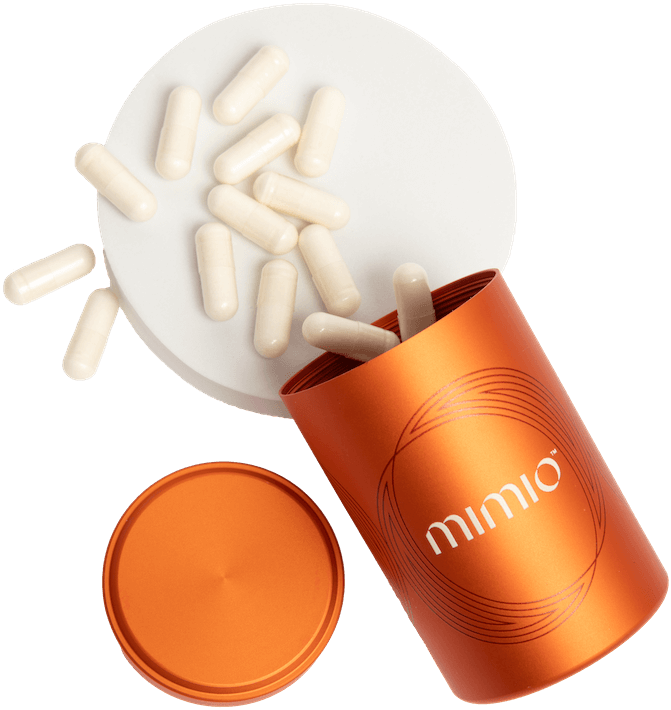Inflammaging Treatment: Your Guide to Alleviating Age-related Inflammation
As we get older, our bodies don’t always feel as lively as they used to; and one major culprit is something called “inflammaging.” It might sound a bit daunting, but don’t worry—it’s more manageable than it seems. In this guide, we’ll walk you through what inflammaging is, why it’s important, and, most crucially, how you can take control and combat it.
What is Inflammaging?
Inflammaging is a catchy term that combines "inflammation" and "aging." It refers to the low-grade, chronic inflammation that tends to increase as we get older. This persistent inflammation plays a sneaky role in many age-related health issues, including heart disease, diabetes, and even cognitive decline.
Neurodegenerative diseases, such as Alzheimer's and Parkinson's, are also heavily influenced by the process of inflammaging. Chronic inflammation can speed up the progression of these conditions, making it even more crucial to understand and combat inflammaging effectively. By managing inflammation, not only can we improve overall health, we can also potentially slow down or mitigate the impact of these debilitating diseases.
Here’s the kicker: inflammaging isn’t caused by an infection or a disease; it’s your body’s way of reacting to the wear and tear of daily life, environmental stressors, and changes in our immune system as we age. Think of it like your body’s alarm system that never quite shuts off—annoying, right?
Neurodegenerative diseases are also profoundly affected by inflammaging. As chronic inflammation continues unchecked, it can exacerbate conditions like Parkinson's and Huntington's disease, leading to faster progression and more severe symptoms. The constant presence of inflammatory markers in the brain creates an environment that accelerates neuronal damage and impairs cognitive functions overall.
Why Inflammaging Happens
- Cellular Senescence: As we age, some cells in our body become "senescent"—which is a fancy way of saying they’ve stopped working but refuse to die. These zombie cells hang around, releasing inflammatory signals that wreak havoc on surrounding tissues.
- Mitochondrial Dysfunction: Remember the mitochondria from biology class? Those little powerhouses inside our cells lose their efficiency over time, leading to energy loss and an increase in inflammatory byproducts.
- Immune System Decline: Our immune system naturally weakens as we age, leading to an imbalance where it overreacts to minor irritations and underreacts to real threats. This imbalance is a major contributor to inflammaging.
How Inflammaging Impacts Your Health
Chronic, low-level inflammation affects almost every aspect of your health:
- Heart Health: Inflammaging can contribute to arterial plaque build-up, raising the risk of heart disease.
- Cognitive Function: Long-term inflammation is linked to cognitive decline, including conditions like Alzheimer’s disease.
- Joint Pain: That achy feeling in your knees? Inflammaging often plays a role in joint degradation.
- Metabolism: Chronic inflammation can mess with your metabolism, making weight management more challenging.
But here’s the good news: while inflammaging might be a natural part of getting older, it’s not a life sentence. There are science-backed ways to help manage and reduce it, helping you stay healthier, longer.
Inflammaging Treatment: How to Combat Age-Related Inflammation
Ready to kick inflammaging to the curb? Here’s how:
-
Intermittent Fasting Fasting isn’t just a trendy health hack; it’s one of the most effective ways to reduce inflammaging. By giving your body a break from constant digestion, intermittent fasting allows your cells to focus on repair and recovery. Studies show that fasting can decrease inflammation, improve immune function, and enhance overall cellular health. Start with a simple intermittent fasting schedule like 16:8 (fast for 16 hours, eat during an 8-hour window) and build from there.
👉 Learn more about intermittent fasting schedules - Eat Anti-Inflammatory Foods
- Fruits and Vegetables: Aim for a rainbow on your plate. Brightly colored produce is packed with antioxidants that fight inflammation at the cellular level.
- Nuts and Seeds: Loaded with omega-3s, nuts, and seeds help reduce inflammatory markers and improve heart health. Just remember, moderation is key—a handful a day keeps the inflammation at bay.
- Fermented Foods: Kombucha, kimchi, and miso aren’t just for hipsters. Fermented foods support a healthy gut, which is directly linked to lower inflammation.
- Move Your Body Regular physical activity is one of the best ways to keep inflammaging in check. Exercise doesn’t just burn calories; it actively reduces inflammatory proteins in the blood, boosts your immune system, and improves mitochondrial function. Aim for at least 30 minutes of moderate exercise, like walking, swimming, or yoga, most days of the week.
- Get Quality Sleep Sleep is when your body gets to work on all the repairs. Skimping on sleep means your body can’t fully recover, leading to increased inflammation. Aim for 7-9 hours of quality sleep per night, and keep a consistent sleep schedule to maximize benefits.
- Manage Stress Chronic stress is like adding fuel to the inflammation fire. Incorporate stress-management techniques such as meditation, deep breathing, or even just spending time in nature. A little zen goes a long way in fighting inflammaging.
- Consider Supplements Some supplements, like CoQ10, NAD+ precursors, and omega-3s, have been shown to reduce inflammation and support cellular health. While supplements are not a replacement for a healthy diet and lifestyle, they can be a helpful addition to your anti-inflammaging toolkit. In addition, consider our Biomimetic Cell Care supplement to optimize your metabolism and enhance your longevity.
- Hydrate Wisely Water helps flush out toxins and inflammatory byproducts, keeping your cells in top shape. Add a splash of lemon for a bit of vitamin C and antioxidants to further boost your hydration game.
The Bottom Line
Aging might be inevitable, but feeling old isn’t. By taking proactive steps to reduce inflammaging, you’re giving your body the best shot at a vibrant, active, and healthy life—no matter your age. Remember, it’s never too late to start making positive changes. So drink that green smoothie, take that yoga class, and give inflammaging the boot. You’ve got this!



